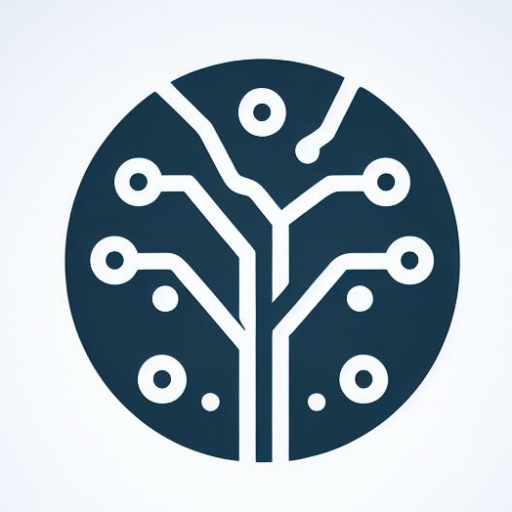The landscape of healthcare in Canada is at a decisive turning point. With an aging population and increasing pressure on health systems nationwide, artificial intelligence (AI) is emerging as a powerful catalyst to revolutionize the way care is delivered at home across the country. Beyond mere automation, these technologies create more personalized, responsive, and efficient care ecosystems, benefiting patients, caregivers, and healthcare professionals.
Intelligent health monitoring: beyond traditional telehealth
AI-powered health monitoring systems represent a significant advancement over traditional telehealth. These sophisticated platforms use multi-modal sensors and advanced algorithms to create comprehensive health profiles that adapt and learn over time.
Example: In Ontario homes, AI systems such as CHARTWatch, developed at St. Michael’s Hospital in Toronto, detect subtle changes in walking habits, sleep quality, medication adherence, and even vocal biomarkers that could indicate cognitive changes or emotional distress. Unlike conventional monitoring that merely transmits data, these systems interpret complex patterns across multiple parameters, identifying correlations that human observers might miss.
Conversational virtual assistants: the evolution of virtual care companions
The latest generation of virtual assistants deployed in Canadian homes goes far beyond basic chatbots. These systems engage in natural and contextual conversations that adapt to individual needs, cognitive abilities, and emotional states.
Example: For elderly individuals living at home, these companions provide medication reminders, but more importantly, they offer cognitive stimulation, memory support, and social interaction that combats isolation. The systems recognize vocal patterns indicating confusion, distress, or mood changes, adjusting their communication style accordingly and alerting care teams if necessary. In Quebec, bilingual AI companions such as Amical effortlessly switch between English and French, preserving cultural connections essential to psychological well-being.
Predictive care: anticipating needs before they arise
Perhaps the most transformative aspect of AI in home healthcare is its predictive capability. By analyzing thousands of data points across multiple domains, these systems identify personalized risk factors and potential complications before they become emergencies.
Example: For post-surgical patients recovering at home in Alberta, AI platforms such as PredictCare analyze a combination of vital signs, movement patterns, vocal characteristics, and even environmental factors to predict potential complications with remarkable accuracy. These predictions enable precise and personalized interventions that prevent hospital readmissions.
Ambient intelligence: a responsive home environment
Beyond wearable devices and dedicated sensors, Canadian innovation in ambient intelligence creates living spaces that intuitively respond to health needs. These environments use discreet sensors, computer vision, and spatial computing to create protective environments that maintain independence while ensuring safety.
Example: In specialized homes in British Columbia, intelligent lighting systems such as SafeLight automatically adjust to reduce fall risks, while spatial awareness systems detect unusual patterns that could indicate distress or confusion. For individuals with cognitive impairments, these environments provide gentle reminders and guidance without the stigma of obvious assistive technology.
Enhanced support for caregivers: strengthening human connection
Rather than replacing human caregivers, Canadian AI implementations focus on augmenting their capabilities. AI systems handle routine monitoring and administrative tasks, allowing professional and family caregivers to focus on meaningful human connections and complex care decisions.
Example: These systems provide real-time decision support, suggesting interventions based on evidence-based practices while continuously learning from outcomes. For family caregivers, AI platforms such as CareGuide offer training, emotional support, and respite coordination that reduce burnout and improve care quality.
Ethical impact and risk
While AI innovations in home healthcare offer transformative benefits, they also introduce significant ethical challenges. Issues such as algorithmic bias, data security vulnerabilities, and unintended consequences must be managed through continuous oversight and transparent practices. Rigorous risk assessments, clear data governance, and active stakeholder engagement are crucial to safeguarding patient rights and sustaining public trust.
The Canadian approach : ethical innovation
The Canadian approach to AI in home healthcare emphasizes ethical implementation that preserves autonomy, privacy, and human connection. The focus remains on augmenting rather than replacing human care, with particular attention to data governance and algorithmic transparency.
Healthcare Excellence Canada ((HEC) is an organization dedicated to improving healthcare in the country. They have developed guiding principles for AI implementation that emphasize the importance of engaging patients, families, and caregivers in the design and implementation process to ensure these technologies meet the real needs of users.
The Pan-Canadian AI for Health (AI4H) Guiding Principles outline shared values designed to help Federal, Provincial, and Territorial (FPT) governments support the responsible and ethical adoption of AI technologies in Canada’s health systems. As part of the “Working Together to Improve Health Care for Canadians” plan, Health Ministers (except Quebec) endorsed a Joint FPT Action Plan on Health Data and Digital Health, along with a Pan-Canadian Health Data Charter, to guide the modernization of Canada’s health system with standardized health data and digital tools.
In Québec, the Ministry of Health and Social Services launched its Strategic Plan for AI in Health (2024–2027). This plan outlines tailored guidelines that emphasize privacy, autonomy, transparency, and robust data governance.
Conclusion
The integration of artificial intelligence in home healthcare represents more than a technological advancement: it offers a reinvention of how care can be delivered with greater personalization, proactivity, and efficiency. As these systems become more sophisticated and accessible, they promise to transform the experience of receiving and providing care, ensuring that more Canadians can age with dignity and manage their health conditions in the comfort of their homes.
By focusing on augmenting human capabilities rather than replacing them, the Canadian approach to AI in home healthcare maintains the essential human connection at the heart of all effective care while using technology to extend its reach and impact.
Mirabilis serviceshttps://publications.msss.gouv.qc.ca/msss/document-003840/
At Mirabilis AI, we firmly believe that AI should benefit everyone, and our commitment spans across all fields. Whether you’re taking your first steps or perfecting your integration strategy, we’re here to support you on your journey toward green, ethical AI. Contact us today, and let’s build a sustainable future together.
Sources : Ai Revolution: transforming Canada’s health care amidst challenges (HealthPoint.)
How AI is Revolutionizing Healthcare in Canada: Innovations and Ethical Impacts (DIveDeepAI)
The potential benefits of AI for healthcare in Canada (McKinsey & Company)




Leave a Reply